Hugh Cook - The Wordsmiths and the Warguild
Here you can read online Hugh Cook - The Wordsmiths and the Warguild full text of the book (entire story) in english for free. Download pdf and epub, get meaning, cover and reviews about this ebook. genre: Romance novel. Description of the work, (preface) as well as reviews are available. Best literature library LitArk.com created for fans of good reading and offers a wide selection of genres:
Romance novel
Science fiction
Adventure
Detective
Science
History
Home and family
Prose
Art
Politics
Computer
Non-fiction
Religion
Business
Children
Humor
Choose a favorite category and find really read worthwhile books. Enjoy immersion in the world of imagination, feel the emotions of the characters or learn something new for yourself, make an fascinating discovery.
- Book:The Wordsmiths and the Warguild
- Author:
- Genre:
- Rating:5 / 5
- Favourites:Add to favourites
- Your mark:
- 100
- 1
- 2
- 3
- 4
- 5
The Wordsmiths and the Warguild: summary, description and annotation
We offer to read an annotation, description, summary or preface (depends on what the author of the book "The Wordsmiths and the Warguild" wrote himself). If you haven't found the necessary information about the book — write in the comments, we will try to find it.
The Wordsmiths and the Warguild — read online for free the complete book (whole text) full work
Below is the text of the book, divided by pages. System saving the place of the last page read, allows you to conveniently read the book "The Wordsmiths and the Warguild" online for free, without having to search again every time where you left off. Put a bookmark, and you can go to the page where you finished reading at any time.
Font size:
Interval:
Bookmark:
Hugh Cook
The Wordsmiths and the Warguild
Chapter 1
Sung was a land which was famous far and wide, simply because it was so often and so richly insulted. However, there was one visitor, more excitable than most, who developed a positive passion for criticising the place. Unfortunately, the pursuit of this hobby soon led him to take leave of the truth.
This unkind traveller once claimed that the king of Sung, the notable Skan Askander, was a derelict glutton with a monster for a son and a slug for a daughter. This was unkind to the daughter. While she was no great beauty, she was not a slug. After all, slugs do not have arms and legs and, besides, slugs do not grow to that size.
There was a grain of truth in the traveller's statement, in as much as the son was a regrettable young man. However, soon afterwards, the son was accidentally drowned when he made the mistake of falling into a swamp with his hands and feet tied together and a knife sticking out of his back.
This tragedy did not encourage the traveller to extend his sympathies to the family. Instead, he invented fresh accusations. This wayfarer, an ignorant tourist if ever there was one, claimed that the king had leprosy. This was false. The king merely had a well-developed case of boils.
The man with the evil mouth was guilty of a further malignant slander when he stated that King Skan Askander was a cannibal. This was untrue. While it must be admitted that the king once ate one of his wives, he did not do so intentionally; the whole disgraceful episode was the fault of the chef, who was a drunkard, and who was subsequently severely reprimanded.
Again, the traveller was in error when he claimed that the kingdom of Sung was badly governed. In fact, the kingdom was not governed at all. Indeed, even to imply that there was such a thing as the "kingdom of Sung" was, to say the least, misleading.
The question of the governance, and, indeed, the very existence of the "kingdom of Sung" is one that is worth pursuing in detail, before dealing with the traveller's other allegations.
It is true that there was a king, his name being Skan Askander, and that some of his ancestors had been absolute rulers of considerable power. It is also true that the king's chief swineherd, who doubled as royal cartographer, drew bold, confident maps proclaiming the borders of the realm. Furthermore, the king could pass laws, sign death warrants, issue currency, declare war or amuse himself by inventing new taxes. And what he could do, he did.
"We are a king who knows how to be king," said the king.
And, certainly, anyone wishing to dispute his right to use the imperial "we" would have had to contend with the fact that there was enough of him, in girth, bulk and substance, to provide the makings of four or five ordinary people, flesh, bones and all. He was an imposing figure; "very imposing," one of his brides is alleged to have said, shortly before the accident in which she suffocated.
"We live in a palace," said the king. "Not in a tent like Khmar, the chief milkmaid of Tameran, or in a draughty pile of stones like Comedo of Estar."
His remarks were, in due course, widely reported.
From Prince Comedo came the following tart rejoinder:
"Unlike yours, my floors are not made of milk-white marble. However, unlike yours, my floors are not knee-deep in pigshit."
The Note from Comedo came promptly, for, pirates and sea monsters permitting, a few days by sea could take one from Estar to Sung. Receiving that Note, Skan Askander placed it by his commode, where it would be handy for future royal use.
Much later, and to his great surprise, he received a communication from the Lord Emperor Khmar, the undisputed master of most of the continent of Tameran. The fact that Sung had come to the attention of Khmar was, to say the least, ominous. Khmar had this to say:
"Your words have been reported. In due course, they will be remembered against you."
The king of Sung, terrified, endured the sudden onset of an attack of diarrhoea which had nothing to do with the figs he had been eating. His latest bride, seeing his acute distress, made the most of her opportunity, and vigorously counselled him to commit suicide. Knowing Khmar's reputation, he was tempted but finally, to her great disappointment, declined. Nevertheless, he lived in fear; he had no way of knowing that he was simply the victim of one of Khmar's little jokes.
In an effort to avert disaster, the king of Sung made the following law:
"Skan Askander, king of Sung, ruler of Ravlish East, emperor of the Lesser Teeth and of the Greater, rightful heir of Penvash and of Trest and of Estar, scourge of the Hauma Sea and lord of the Central Ocean, will and must and does with respect and piety thrice daily honour an image of the Lord Emperor Khmar, most noble and esteemed Overlord of All Lands and All Peoples for All Eternity."
The law was obeyed, one of Khmar's far-flung coins serving as an image until a statue could be made.
Thus, thrice daily, Skan Askander bowed down to his idol, the graven image of the distant emperor of Tameran. Khmar, hearing of this, sent him a present a wine skin containing the death-blood of a traitor. The skin was many days in transit; the condition of the contents on arrival are better imagined than described. However, the king thanked Khmar for his gift, and sent him a side of bacon in return.
Skan Askander ordered the wine skin, bereft of contents, to be paraded in front of his household once a year, at a solemn ceremony at which all present were to take or affirm an oath of fealty to the distant emperor.
This was done.
So it is clear that at least two of the king's laws were effective. Furthermore, obedient to his written commands, the sun rose in the east and set in the west; the moon waxed and waned; the tides rose and fell; the winds swept in from the open oceans and brought generous helpings of rain to his scrabble-rock kingdom.
Nevertheless, most of the laws passed by the king were widely flouted, or obeyed only by accident. He decreed that everyone should wash their bodies at least once in every lunar month; scarcely one person in a thousand obeyed. He had more success with a law forbidding people to sleep by daylight, but no joy whatseover with a ludicrous statute he was drunk at the time he signed it into law which endeavoured to compel people to obtain written permits from the state to authorise their births, deaths and marriages.
As for the king's wars, death warrants and taxes, these were never fought, executed or raised; indeed, most of the king's putative subjects never heard of those wars, death warrants and taxes. In fact, many of them lived out their lives without hearing of the king.
For, if the unvarnished truth be told, the borders established with such exactitude by Skan Askander's part-time cartographer were, not to put too fine a point upon it, fatuous. In the continent of Argan, many leagues to the east of the king's palace and piggery, the lands of Trest and Estar had their own rulers, while Penvash was commanded by the Melski, green-skinned monsters who had defeated the king's ancestors in a disastrous war which had permanently undermined the credibility of the monarchy.
To the south, the islands of the Greater Teeth were under the sway of the Orfus pirates, those gentlemen occasionally known but only to themselves as the Honourable Associates of the Free Federation of High Sea Sailors. Skan Askander's claim to rule the Greater Teeth was spurious; even the fishermen and fisherwomen who inhabited the low-slung sandy islands of the Lesser Teeth defied him, for they lived independently, acknowledging no rulers whatsoever.
As for the eastern end of the Ravlish Lands, where the king had his home, most of it was effectively under the control of the barons who lorded it over huge country estates, or was supervised by self-governing towns which had persuaded the world to describe them as "city states," though few had a population of more than two thousand talking heads.
Font size:
Interval:
Bookmark:
Similar books «The Wordsmiths and the Warguild»
Look at similar books to The Wordsmiths and the Warguild. We have selected literature similar in name and meaning in the hope of providing readers with more options to find new, interesting, not yet read works.
Discussion, reviews of the book The Wordsmiths and the Warguild and just readers' own opinions. Leave your comments, write what you think about the work, its meaning or the main characters. Specify what exactly you liked and what you didn't like, and why you think so.

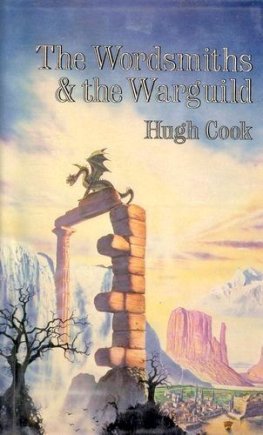
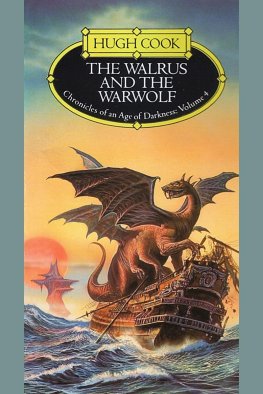
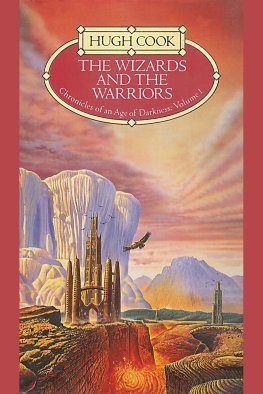

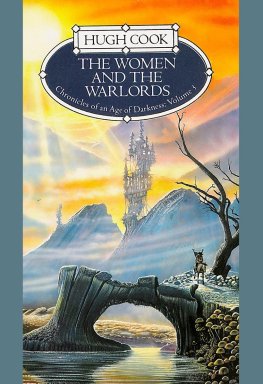
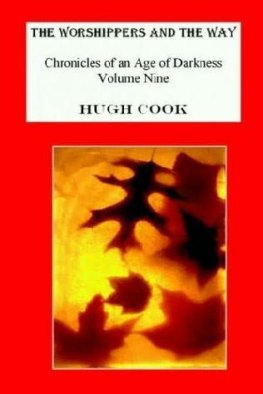

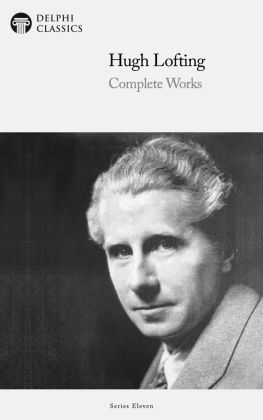
![Robert Hugh Benson [Benson - Robert Hugh Benson Collection [11 Books]](/uploads/posts/book/139831/thumbs/robert-hugh-benson-benson-robert-hugh-benson.jpg)
